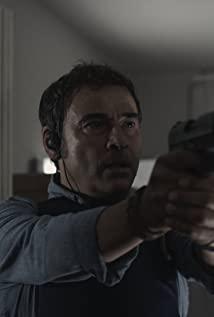After Iranian director Asha Fahati won the Berlin Film Festival Golden Bear with "A Farewell", he began to have a covetous heart for Cannes Palme d'Or, or a complex of perseverance. In 2013, the French film "The Past" was shortlisted for the first time and won the best actress. In 2016, the "Salesman" was shortlisted for the second time, winning the best screenplay and actor and actress, proving Cannes' acceptance and acceptance of his work. affim. Unexpectedly, in 2018, he made another non-native language film, this time he chose Spanish film, which once again challenged the peak of his career.
This "Everybody Knows" not only successfully entered the Cannes competition, but was also selected as the opening film of the year. Thanks to the help of a group of top Spanish-speaking actors, it added a star-studded look to the Cannes opening red carpet and was also attractive The audience's eyeballs have done enough homework. Although finally returned empty-handed, this non-native language film is no less inferior to 2013's "The Past", once again showing Fahadi's superb screenwriting talent. This time he put aside the shackles of traditional Iranian cultural thinking, and devoted himself to the Spanish background to create a gripping melodrama. Maybe it's all because of the Spanish-speaking actors, some of the scenes and plots seem to make people walk into Almodovar's movies. However, the characters in Farhati's story do not have the madness of Almodovar. They each dealt with unexpected accidents calmly, struggling with past events and secrets, and making hard choices. Similar to the strategy of "The Past", the director could not put the characters in a moral dilemma to promote the dramatic plot, and chose to use a kidnapping case to introduce a criminal thriller type plot. Fahati has always preferred to create a suspenseful atmosphere in his works. This indispensable element in his script is his best and most distinctive author label.
The narrative point of this kidnapping case is calm and delicate, and the script slyly reveals seemingly missing details from time to time, which has always disturbed the audience's sight and makes people constantly adjust their guesses about suspense. In Fahati’s previous works shot in Iran, the secrets were often hidden until the last moments were revealed, but this time he did the opposite, and "everyone knows everything" in the middle of the film. This seemingly core secret of the story makes the second half of the story run towards the dog-blood plot of the TV soap opera. This script is written very much like the texture of the Spanish popular commercial film, but in fact, Fahati took the risk of this narrative to keep revealing The past emotional love and hatred of the hero and heroine, the financial entanglement between the two families/classes, the topic of blood ties, and the core of it is the crisis of trust between people. I think this is the subject of this much criticized script. This kind of distrust spreads to every group of characters: wife and husband, mother and kidnapped daughter, former Du and his wife, and this big The portrayal of ghosts in the family's own minds is an incentive for the suspense of the plot to constantly deviate from the audience's expectations, while also leaving room for the audience to think about the weaknesses in the nature of human nature.
This is Fahati's second non-native language theme work. It obviously learns the lessons from the first French film "The Past", avoids trivial noisy passages as much as possible, and focuses the narrative firepower on the suspense structure and atmosphere. The script introduced a retired veteran police chief to make this type of criminal thriller become very relevant, and the scene of people looking for evidence in the wedding video video was quite attractive. Hope, even more at all costs to completely expose the criminals in front of the camera.
In addition, Fahati's capture of the native Spanish culture and customs is quite accurate, and the scene on the clock tower has the charm of European art films. The name engraved on the wall of the clock tower, the girl accidentally rang the bell, and the pigeon flew out of the incomplete hole. These scenes are all poetic expressions common in European movies, the love pictures and value orientations of the two generations, and the relationship between The praise of time is all revealed in these beautiful pictures.
View more about Everybody Knows reviews











